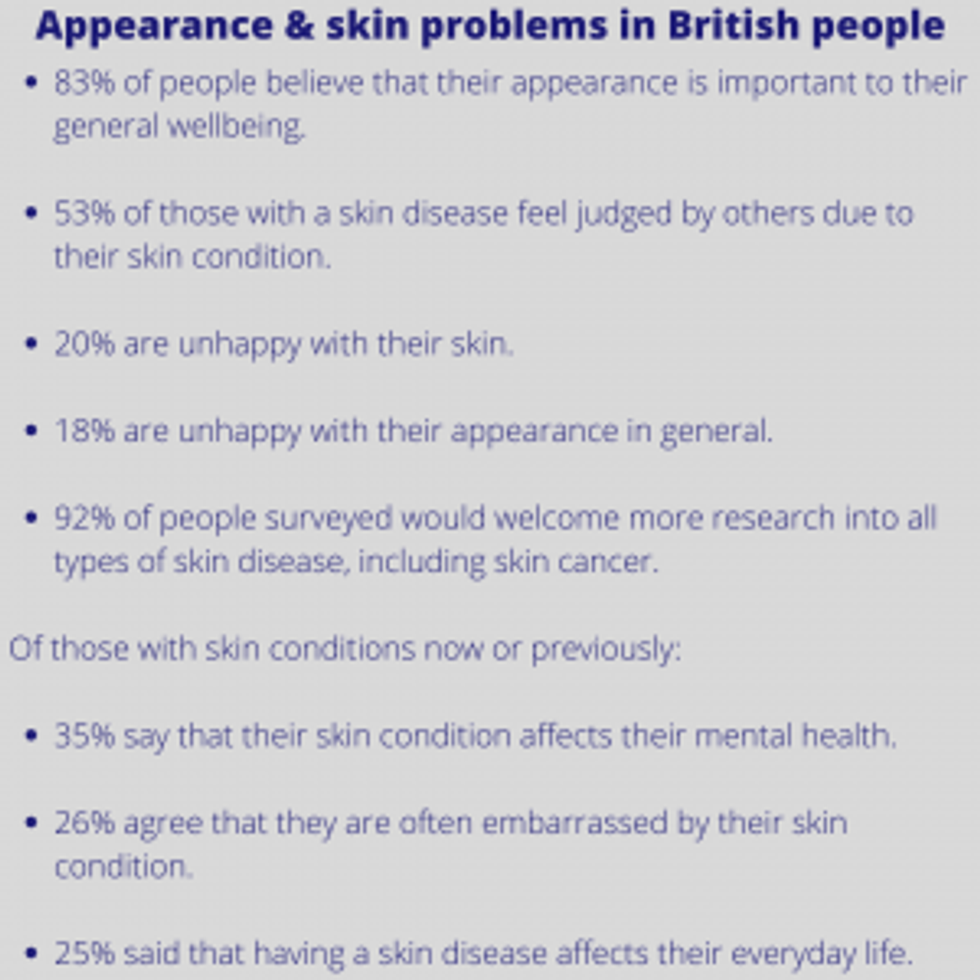A new survey by the British Skin Foundation has revealed that more than half of those with a skin disease feel judged by others.
Additionally, a significant number of people with skin conditions say that it affects their mental health, everyday life and often leaves them feeling embarrassed.
The report said four in five agree that their appearance is important to their general well-being. One in five are unhappy with their skin and appearance in general, with almost all the people surveyed saying they would welcome more research into skin disease.
Matthew Patey, chief executive officer at the British Skin Foundation, says: “It’s clear from the results of our latest survey that skin and appearance play a huge part in our mental health and happiness. Whilst the skin is the body’s largest organ, most people underestimate its importance, dismissing skin issues as simply cosmetic.
"They wouldn’t downplay disease concerning other organs in the body so easily. At the British Skin Foundation, we are working to find cures and treatments for all types of skin disease, including skin cancer. Our survey proves that the public are keen for more research into skin problems, which means we need your support today.”
Professor Andrew Thompson, consultant clinical psychologist and British Skin Foundation spokesperson, says: “We know from a multitude of studies conducted by myself and other researchers working in this area, that skin disease is associated with higher risk of experiencing psychological distress. Whilst there may be both complicated physiological and psychosocial reasons why skin conditions are linked to feelings of anxiety and depression, the good news is that psychological treatment can help and consequently it’s important to seek help as soon as symptoms of depression or anxiety are noticed.”
Dr Anjali Mahto, consultant dermatologist and British Skin Foundation spokesperson agrees: “Sadly, I don't find these statistics a shock or surprise as this data mirrors very much what many of us see in clinic. We can no longer ignore the growing links between the skin and mind; skin conditions are not simply cosmetic or beauty issues and those who are suffering need to be taken seriously. No one should have to feel alone or suffer in silence. Please consider seeking help from your GP or dermatologist if your skin is impacting your ability to live your life on a daily basis.”
The British Skin Foundation has been funding skin research for 25 years to help find cures and treatments for a wide range of conditions. Increasingly, the psychological aspects of skin disease are rightly recognised for being just as important as the physical manifestations.












